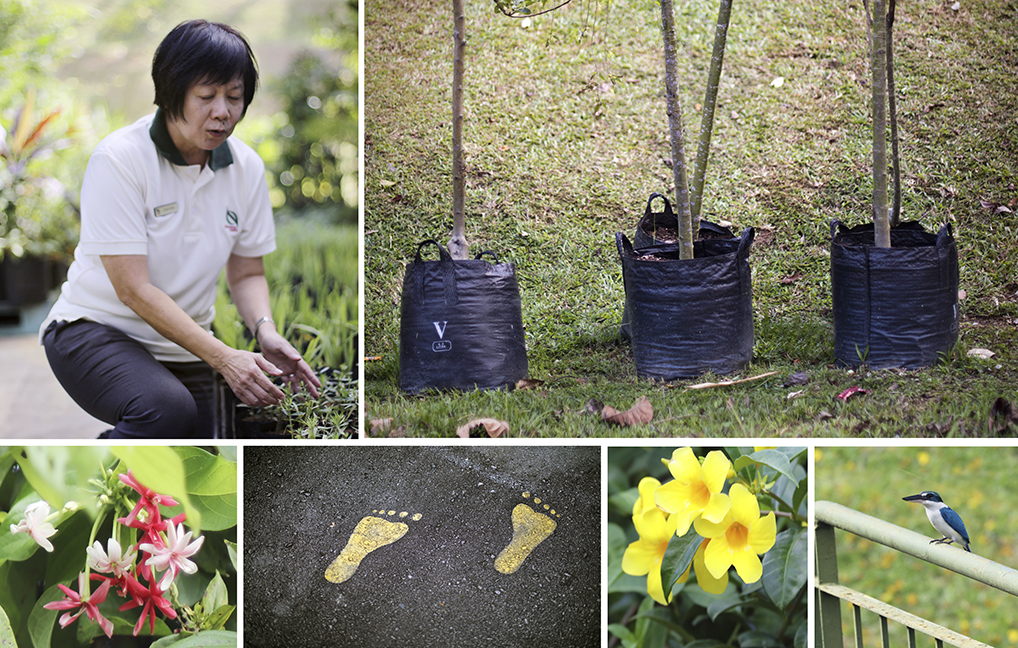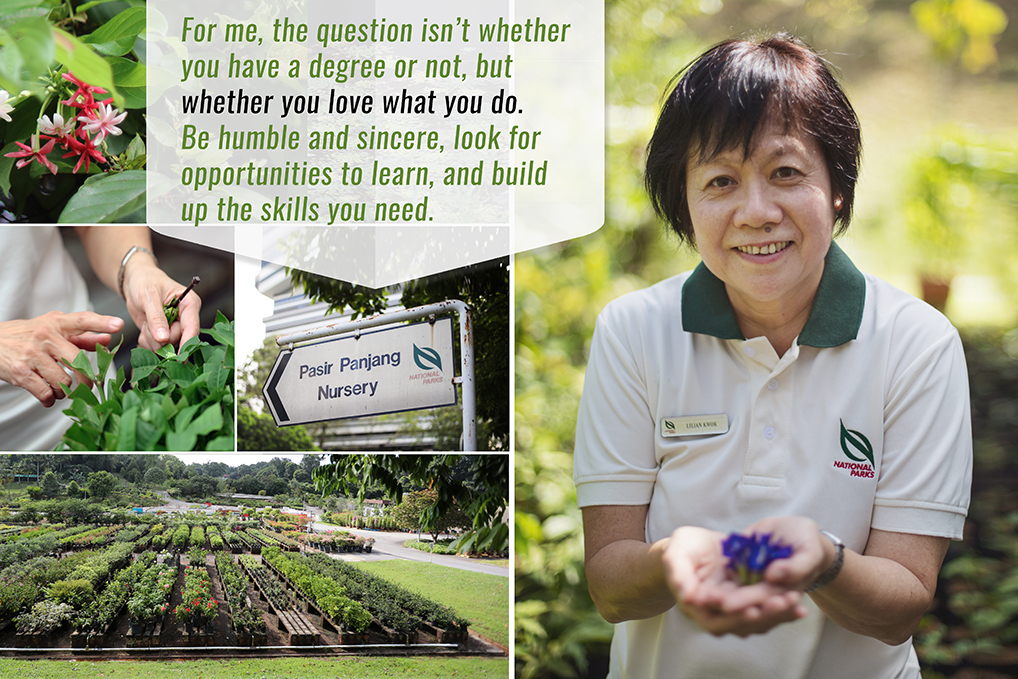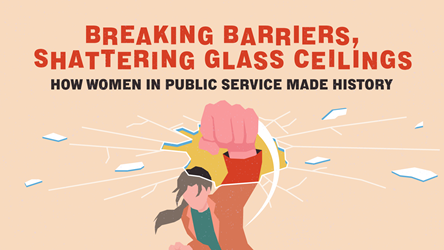Seeds for the Future

As Ms Lilian Kwok recalls, growing up in a kampong helped her develop a passion for all things green.
“This was in the Sembawang area; I was born in 13th Mile. When I was a little older, my family moved to 14th Mile, and then later to 15th Mile. Things were simpler then. After school, we’d come home and then do our chores, homework and gardening. We spent a lot of time growing our own vegetables and fruits like sweet potato, tapioca, guava and soursop,” she says.
After completing a diploma at the School of Ornamental Horticulture and Garden Design at the Singapore Botanic Gardens, in 1979, Ms Kwok joined the National Parks Board (NParks) as a Horticultural Assistant. She started out designing horticultural elements within the Civic District before moving on to development and planning work.
There was much for Ms Kwok to learn, but she was ably guided by her supervisors and fellow officers. She was involved in the development plans for areas such as Sungei Buloh Wetland Reserve in 1988, and then Pulau Ubin and Chek Jawa Wetlands in 2007. Having cultivated specialised knowledge of her chosen field, in 2008, Ms Kwok was tasked to oversee the Horticultural Standards & Nursery Management teams. She welcomed the new challenge.
“It was a good change for me to go back to plants, after having done development and planning work for many years. The nursery was 40 years old by then, and hadn’t changed very much. But as I was new to the role, I could see things from a different perspective, and offer new suggestions. We always try to be prudent and environmentally friendly, and we’re conscious of how we can maximise limited resources to produce our plants,” she recounts.
Nestled in a valley at Pasir Panjang, the NParks nursery spans 12 hectares (roughly the size of 30 football fields). An oasis of calm just a minute away from the West Coast Viaduct, the nursery currently houses about 300,000 plants. Unlike those that can be found at commercial nurseries, almost all the plants at the NParks nursery are produced from seeds and cuttings, and will eventually be used for parks, streetscapes and schools across the island. Among the initiatives that Ms Kwok has championed is the recovery and propagation of native plant species, an important step in preserving Singapore’s natural heritage.

“We treat all the seedlings here like our babies – with tender, loving care. Our team goes out every week to collect specimens at Central Catchment Nature Reserve, Bukit Timah Nature Reserve, Sungei Buloh, Pulau Ubin and our offshore islands. When people can't find certain rare plants, they always come to us”, says the 58 year-old.
Ms Kwok’s is committed to raising her officers’ professional skills and competencies. She also promotes best horticultural practices and provides updates to knowledge repositories such as NParks' Flora&FaunaWeb website and the 1001 Garden Plants in Singapore book. While Ms Kwok had previously considered getting a degree, she never seriously pursued it, and doesn’t believe that this has disadvantaged her in any way.

“I realised that I could also learn much from the job itself, from reading on my own, and from my colleagues. NParks has also been very generous with training and development opportunities; this helps us to stay relevant and learn about the latest techniques and technologies in plant propagation.”
“For me, the question isn’t whether you have a degree or not, but whether you love what you do. Be humble and sincere, look for opportunities to learn, and build up the skills you need. What I love about my job is that I get to see, grow and work with plants every day. And when the team makes a rare find, everyone here gets very excited!”, she quips.
- POSTED ON
Apr 16, 2017









